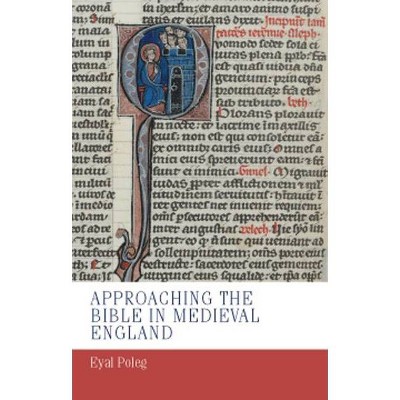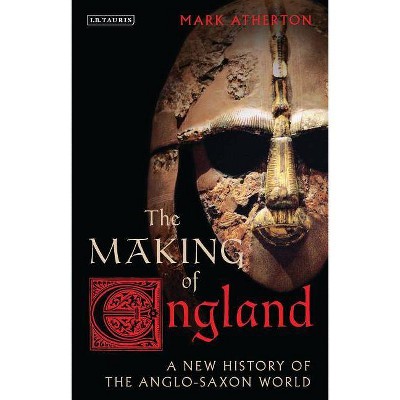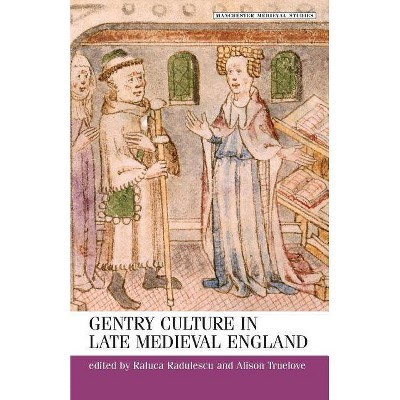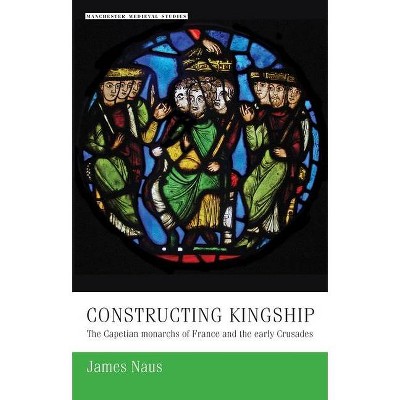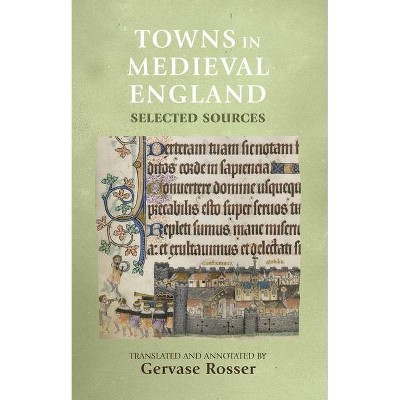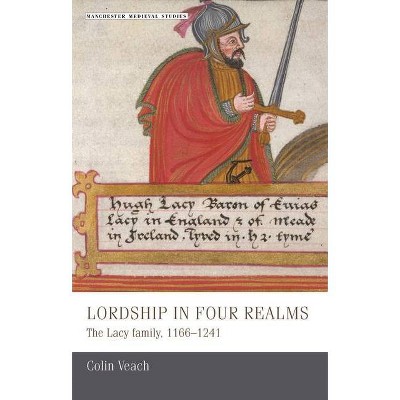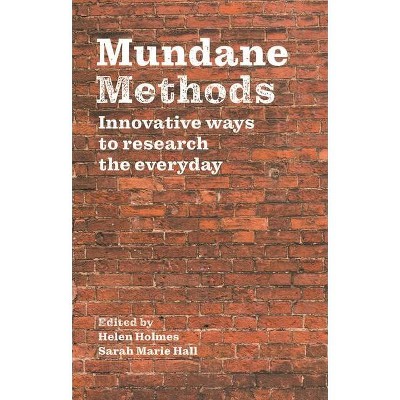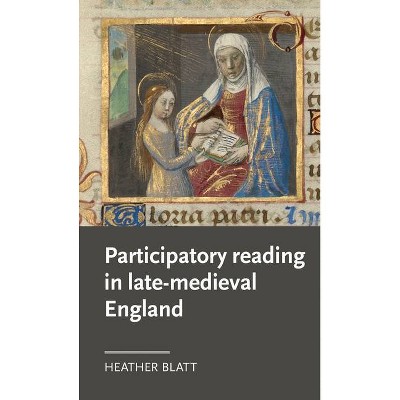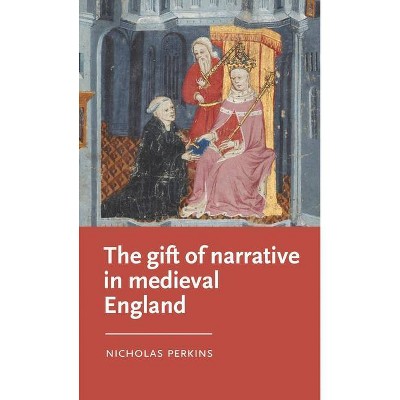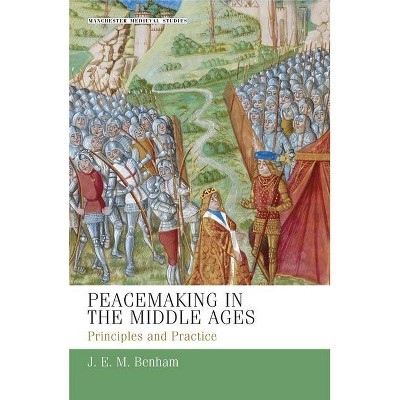Immigrant England, 1300-1550 - (Manchester Medieval Studies) by Mark Ormrod & Bart Lambert & Jonathan Mackman (Paperback)
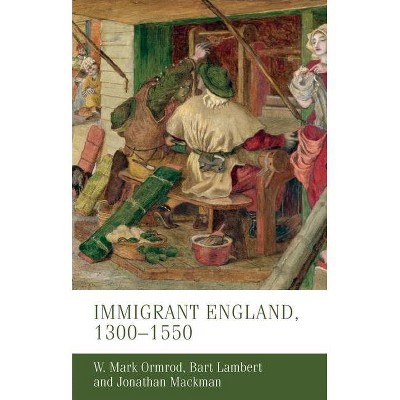
Similar Products
Products of same category from the store
AllProduct info
<p/><br></br><p><b> About the Book </b></p></br></br><i>Immigrant England </i>tells the story of thousands of people who migrated to later medieval England. The book draws on uniquely rich evidence about the lives of these men and women, and analyses the attitudes of the English to the foreigners in their midst. Essential reading for everyone interested in the historical dimensions of modern debates.<p/><br></br><p><b> Book Synopsis </b></p></br></br><p>This book provides a vivid and accessible history of first-generation immigrants to England in the later Middle Ages. Accounting for upwards of two percent of the population and coming from all parts of Europe and beyond, immigrants spread out over the kingdom, settling in the countryside as well as in towns, taking work as agricultural labourers, skilled craftspeople and professionals. Often encouraged and welcomed, sometimes vilified and victimised, immigrants were always on the social and political agenda.</p><p><em>Immigrant England</em> is the first book to address a phenomenon and issue of vital concern to English people at the time, to their descendants living in the United Kingdom today and to all those interested in the historical dimensions of immigration policy, attitudes to ethnicity and race and concepts of Englishness and Britishness.</p><p/><br></br><p><b> From the Back Cover </b></p></br></br><i>Immigrant England, 1300</i>-<i>1550</i> provides a comprehensive account of the identities, nationalities, occupations, families and experiences of first-generation immigrants to England during the later Middle Ages. It addresses both official policy and public responses to immigration in the age of the Black Death, the Hundred Years War and the early Tudor monarchy, revealing how dramatic changes in the English economy fundamentally affected levels of tolerance and discrimination. Drawing on data unique in Europe before the nineteenth century, the book provides both a quantitative analysis of immigrants and a qualitative assessment of the reception these incomers received from English society at large. Accounting for one per cent or more of the population of England in the fifteenth century and coming from all parts of Europe and beyond, immigrants spread out over the kingdom. They settled in the countryside as well as in towns, and in a multitude of occupations, from agricultural labour to skilled crafts and professions. Often encouraged and welcomed, sometimes vilified and victimised, immigrants were always on the social and political agenda in late-medieval England. This book is the first to address a phenomenon and issue of vital concern to English people at the time, to their descendants living in the United Kingdom today and to all those interested in the historical dimensions of immigration policy, attitudes to ethnicity and race, and concepts of Englishness and Britishness.<p/><br></br><p><b> Review Quotes </b></p></br></br><br>'The authors know that they are pioneers in this field, at least in terms of providing a systematic and robust study, and they duly lay the foundations for any future scholars wanting to work on the history of immigration to medieval England, its origins and causes, the experience of immigrants, the vagaries of government and civic policy, and the attitudes of the host population. This book will be essential reading for scholars embarking on research in this field.' <i>Economic History Society</i> 'With <i>Immigrant England, 1300-1550</i>, W. Mark Ormrod, Bart Lambert, and Jonathan Mackman provide readers with a truly fascinating, thoughtful, comprehensive, yet accessible, account of immigration into England in the later Middle Ages. Their work poses, and answers, important questions about our understanding of immigration. For example, to what extend did inward-looking English nationalism (such as it was) at this time promote racial and ethnic hostility? Furthermore, the authors have sought to "humanise the immigrant experience in England" (259); in this, they have succeeded.' <i>Journal of British Studies</i> 'It should be a starting point for anyone who would aim to further explore the diversity of medieval communities and the immigrants' economic activities. For those interested in the political and legal background of naturalization procedure as well as the history of immigration policies, this will be a particularly engaging read. More generally, the study also provides a good basis for the evolution of debates within the social sciences around the concept of immigrant, nationality, race, and religion. Moreover, the comprehensive structure of the study makes it a useful resource for teaching on both undergraduate and postgraduate courses in history and politics. In these and many other ways, Immigrant England contributes significantly to the longerterm history of immigration and provides a deep historical context for important contemporary debates about the free movement of peoples, about multiculturalism, and about national identity in the United Kingdom.' <i>Speculum</i><br><p/><br></br><p><b> About the Author </b></p></br></br><br><strong>W. Mark Ormrod</strong> is Emeritus Professor of Medieval History at the University of York <p/><strong>Bart Lambert</strong> is Lecturer in the History of the European City in the High and Late Middle Ages and a member of the HOST research group at the Vrije Universiteit Brussel, Belgium <p/><strong>Jonathan Mackman</strong> is Honorary Fellow in History at the University of York<br>
Price History
Cheapest price in the interval: 29.95 on November 8, 2021
Most expensive price in the interval: 29.95 on December 20, 2021
Price Archive shows prices from various stores, lets you see history and find the cheapest. There is no actual sale on the website. For all support, inquiry and suggestion messages communication@pricearchive.us
